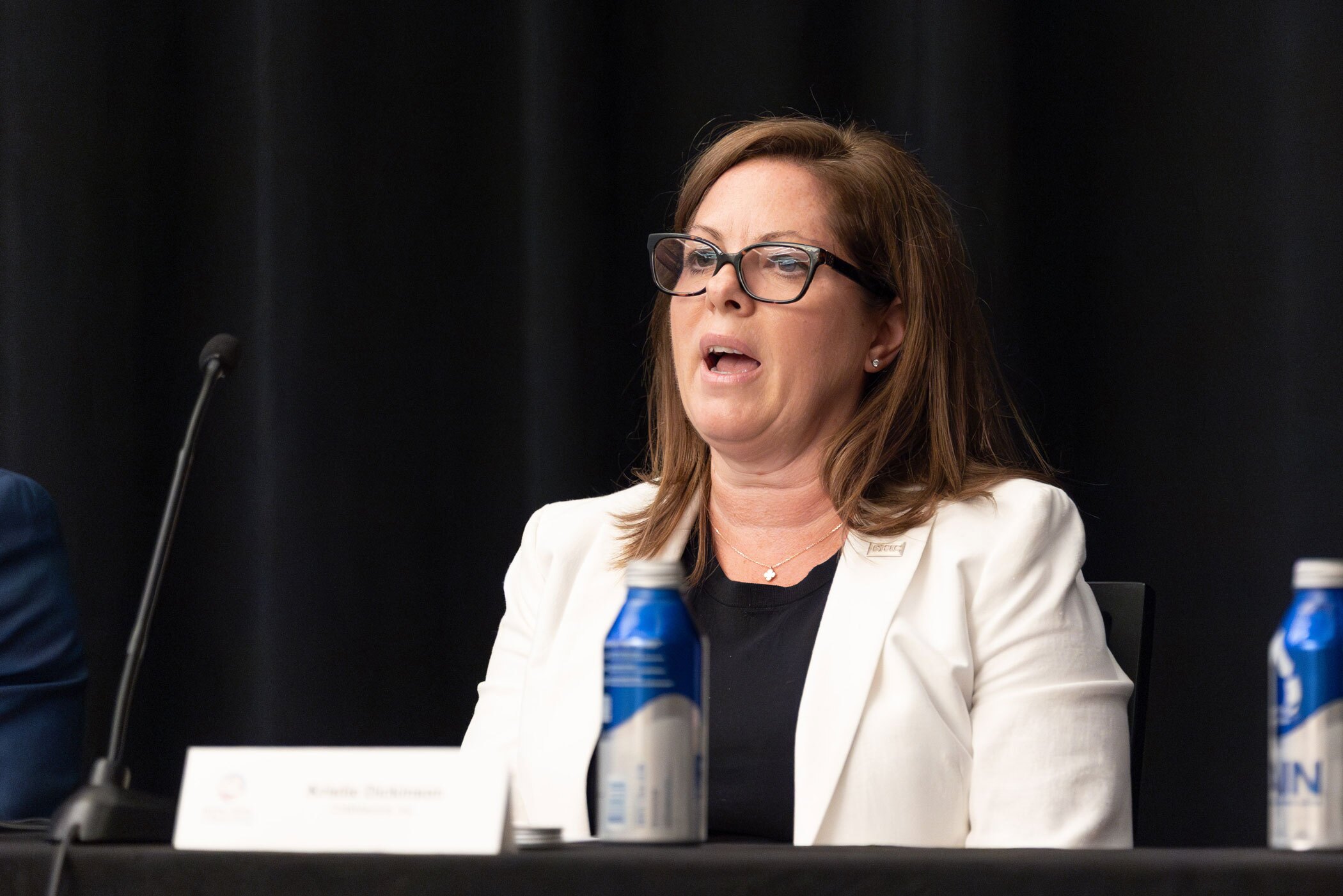NASHVILLE, Tennessee — U.S. hoteliers are bracing for demand declines and tougher year-over-year comparisons in the second half of the year, and hospitality's revenue strategists are on the front lines.
After CoStar and Tourism Economics unveiled an updated U.S. hotel forecast that anticipates a full-year decline in revenue per available room in 2025, a panel of revenue managers considered how best to operate in a period of uncertainty.
Ali Hoyt, co-founder, Larkspur Hospitality Consulting, said hoteliers now require “even more so a holistic approach,” including understanding guest demographics, finding new ways to attract groups business and drive ancillary spending on-property.
Paul Rantilla, senior vice president and corporate revenue office, ancillaries, for IT firm and business advisory Plusgrade, said from his perspective few hoteliers have a comprehensive strategy to offset pain points and drive profitability.
“They have bits and pieces,” he said,
Every touchpoint in a guest's journey needs to be isolated, understood and acted on, he added.
“It is not just about upgrades, [food and beverage] and the spa,” Rantilla said.
Christopher Ellison, vice president of revenue at Brittain Resorts & Hotels — which has more than 4,700 rooms in 29 hotels in the U.S. including 21 on the South Carolina coastline — said instant gratification is the name of the game. He added hotel guests are looking for add-ons that immediately announce their value.
“Are they convenient and affordable, and can I pay for it now? It is all about timing,” he said.
Robert Morse, vice president of revenue management for hotels at Davidson Hospitality, said hotel revenue managers can drive profitability if the on-property teams behind the check-in desk are empowered to offer room upgrades and extra amenities to guests. He added hotel employees need to exercise creativity and ownership, especially in urban hotels “where there might not be so much for the kids to do. It comes down to execution.”
Kristie Dickinson, managing director and executive vice president at CHMWarnick, gave a concrete example of dynamic pricing in the ancillary space, considering how hotels are daily selling perishable commodities.
“Do you have two remaining cabanas on a hot day?” she said, adding a staff on the front foot will instantly see the worth of this and guests will instantly see the value.
What is a required is a rock-solid plan around return on investment, she said.
“What can you do with the demand you have?” Dickinson said.
Crunching numbers
Artificial intelligence is a meaningful change and could drastically evolve revenue strategy, panelists said. AI can help hoteliers be more effective in their sales strategies, in how guest engagement is conducted and in numerous other ways to help push revenue.
At the core, revenue managers must understand the type of traveler the hotel has, what rates they pay, where they come from and what they’ve spent before. This isn't new, but during a down cycle, these tenets are more important when costs keep increasing, panelists said.
In full-service hotels, labor costs in May gobbled up 37% of all expenses in 12-month rolling numbers, while, in the same period, total revenue per available room increased by only 6%, Hoyt said.

How hotel companies navigate the labor issue is critical. CHMWarnick’s Dickinson said her firm leaned into using contract labor during the pandemic, and that situation has not changed.
“We’re still using it today, about 50%, but we are constantly revisiting to get the right mix. An area where can you get efficiencies is in cross-training and getting greater flexibility from staff. We also can offer more shifts if that is what [employees] want,” she said. “Technology also is at the tip of the iceberg, so there are opportunities. There is concern that it becomes too impactful on the guest experience, but there is scope.”
Rantilla said the hospitality industry has learned a lesson from the lean years of the pandemic. He added finance teams should work with every department and staff member to reeducate them on profitability and how it flows to the bottom line.
Hotel leaders also need to hunker down and prepare for the lean months ahead, Ellison said.
“It is not slash, slash, slash but getting the playbook right [so as] when you can rebound,” he said.
Plain planning
Planning is a hotelier's greatest weapon, the panel agreed.
“Plan, so the team knows what to do at any inflection point, so that they have the flexibility, that there is a plan to stop the bleeding or to capitalize,” Dickinson said.
She said several of CHMWarnick's hotels have put into place a more group-centric strategy and regular discussions with revenue managers on pricing.
“Try not to get too scared, and from a budgeting viewpoint, you can only do that with the data you have today. Owners acknowledge that,” she said.
Davidson’s Morse said in 2024 all group and business-travel talk was on Thursday occupancy.
“Now, here, we’re talking about Wednesday occupancy. There is opportunity. I do not see average daily rate falling due to the cost of everything,” he said.


